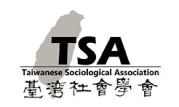中研院社會所於9月22日(五)14:30~16:30邀請德國Bamberg大學Michael Gebel教授演講,敬請惠予公告並轉寄周知
2017-09-04
講 題:School-to-work transition and first marriage in the Caucasus and Central Asia
主講人:Michael Gebel 教授 (University of Bamberg, Germany)
時 間:106年09月22日(星期五)下午2時30 分 - 下午4時30分
地 點:社會所802會議室
ABSTRACT Across the globe many young people have difficulties in finding a good job and they experience precarious periods of unemployment, temporary and informal employment. This applies particularly to post-Soviet countries of the Caucasus and Central Asian (CCA) region where young people face multiple uncertainties due to the ongoing social transformation processes and persistent labour market problems. Such problems are often seen as factors contributing to the delay of further youth transitions such as first marriage. While previous research investigated this issue in Europe, the US and East Asia not much is known about it in the CCA region. This paper fills this research gap by analysing how experiencing labour market uncertainties during the early career affects the timing of first marriage using nationally representative, retrospective life history data of the TEW-CCA project from Azerbaijan (N=2002), Georgia (N=2000) and Tajikistan (N=2000) that were collected in 2016/17. Multivariate event history analyses on the relationship between the transition from education to work and the transition to first marriage are presented. Gender-specific analyses are conducted as it is expected that the effects differ between men and women. Results are compared across countries in order to detect similarities and differences across the three CCA countries.
ABOUT THE SPEAKER Michael Gebel is Full Professor of Sociology, especially Methods of Empirical Social Research, at the University of Bamberg, Germany. His main research interests are youth labour markets and transitions to adulthood in international comparison. He has co-authored three comparative books and published widely in academic journals on youth issues. Currently, he is (co-)coordinator of the research projects EXCEPT and TEW-CCA, which involve 80 researchers from 13 countries.

主講人:Michael Gebel 教授 (University of Bamberg, Germany)
時 間:106年09月22日(星期五)下午2時30 分 - 下午4時30分
地 點:社會所802會議室
ABSTRACT Across the globe many young people have difficulties in finding a good job and they experience precarious periods of unemployment, temporary and informal employment. This applies particularly to post-Soviet countries of the Caucasus and Central Asian (CCA) region where young people face multiple uncertainties due to the ongoing social transformation processes and persistent labour market problems. Such problems are often seen as factors contributing to the delay of further youth transitions such as first marriage. While previous research investigated this issue in Europe, the US and East Asia not much is known about it in the CCA region. This paper fills this research gap by analysing how experiencing labour market uncertainties during the early career affects the timing of first marriage using nationally representative, retrospective life history data of the TEW-CCA project from Azerbaijan (N=2002), Georgia (N=2000) and Tajikistan (N=2000) that were collected in 2016/17. Multivariate event history analyses on the relationship between the transition from education to work and the transition to first marriage are presented. Gender-specific analyses are conducted as it is expected that the effects differ between men and women. Results are compared across countries in order to detect similarities and differences across the three CCA countries.
ABOUT THE SPEAKER Michael Gebel is Full Professor of Sociology, especially Methods of Empirical Social Research, at the University of Bamberg, Germany. His main research interests are youth labour markets and transitions to adulthood in international comparison. He has co-authored three comparative books and published widely in academic journals on youth issues. Currently, he is (co-)coordinator of the research projects EXCEPT and TEW-CCA, which involve 80 researchers from 13 countries.




